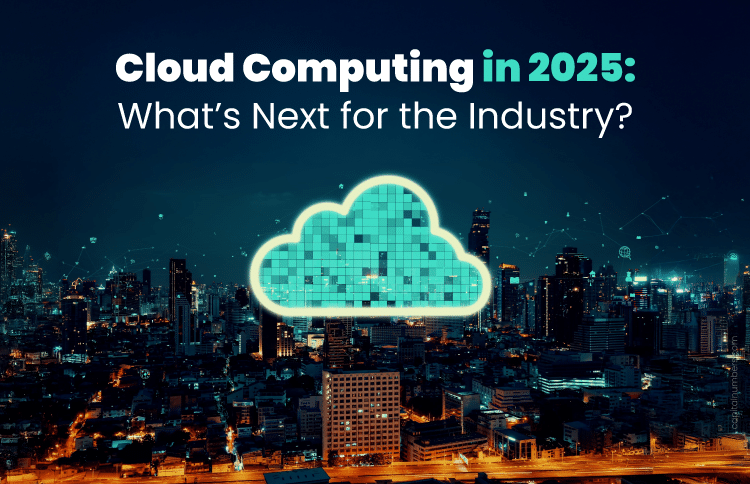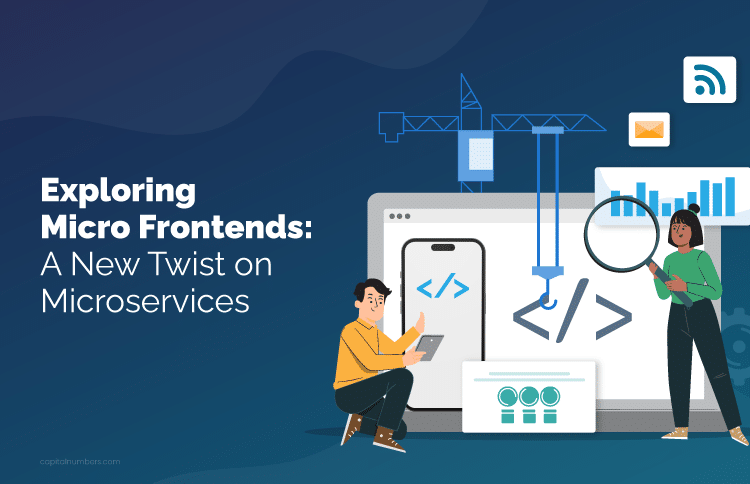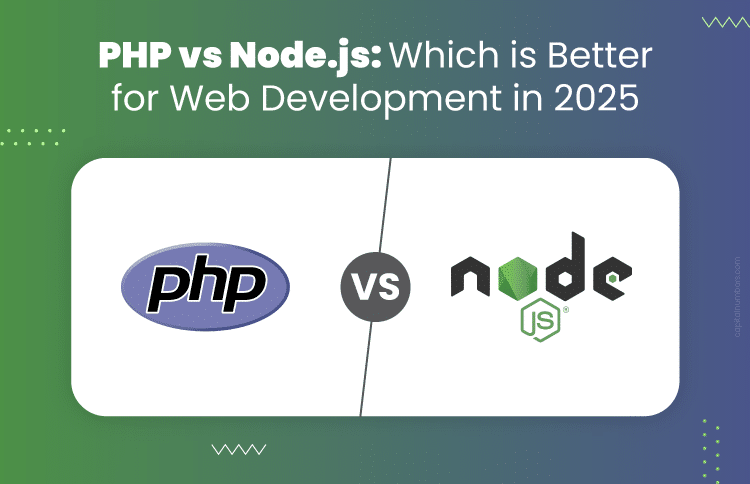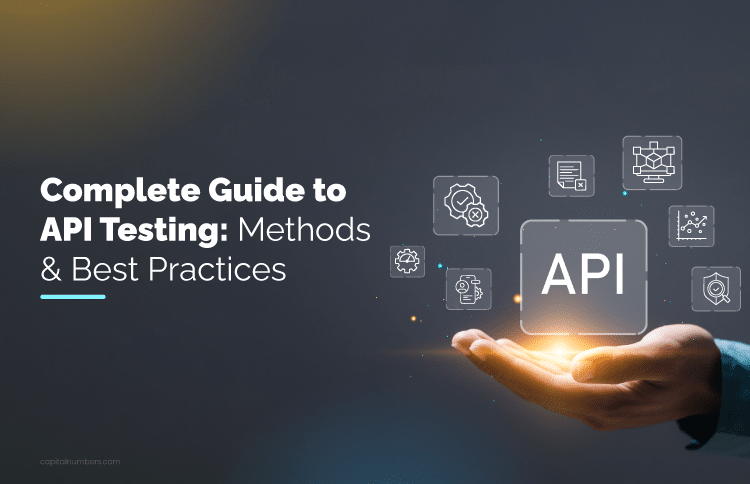Cloud Computing in 2025: What’s Next for the Industry?
Table of Contents
Cloud computing has changed how we work, communicate, and store data. Whether it’s streaming your favorite show, using AI-powered chatbots, or managing remote teams, the cloud is at the heart of it all. And in 2025, it will not just improve – it will completely transform. With advancements in AI, edge computing, and quantum technology, the cloud will become faster, smarter, and more secure.
This means businesses can expect greater efficiency, lower costs, and stronger data protection. As companies accept these changes, cloud engineering services will be crucial in helping them scale and innovate. It will help businesses keep up with cloud advancements and stay competitive in the changing digital landscape.
Top Cloud Computing Trends in 2025
As cloud technology evolves, several key trends will shape its future. But what are these? Here are the major developments businesses should watch out for in the coming year.
1. AI-powered Cloud Services
What are AI-powered cloud services?
AI-powered cloud services mean using artificial intelligence to make cloud computing smarter and more efficient. They help automate tasks, optimize performance, and improve security without human effort. AI analyzes data, predicts problems before they happen, and handles routine cloud operations. Thus, it makes everything run smoothly and faster.
How will it impact cloud computing?
- Smarter Cloud Management: AI will automatically manage cloud resources, scaling, and performance without manual work.
- Faster Data Processing: AI-powered tools will analyze large amounts of data instantly and help businesses make quick decisions.
- Stronger Security: AI will detect and block cyber threats in real-time. It will keep cloud systems safe.
- Better Performance & Lower Costs: AI will optimize cloud workloads, reduce waste, and help businesses save money.
What is the future?
- AI-Driven Self-Healing Cloud: Cloud platforms automatically detect and fix issues before they affect users.
- Smarter AI Assistants: Virtual cloud assistants will help businesses manage cloud operations with voice or text commands.
- More Personalized Cloud Solutions: Businesses will receive AI-tailored cloud recommendations. It will ensure better efficiency and resource management.
2. Multi-cloud and Hybrid Cloud
What are multi-cloud and hybrid clouds?
Multi-cloud and hybrid cloud are smart cloud computing strategies businesses use nowadays. Multi-cloud means using services from different cloud providers, while hybrid cloud combines private and public clouds for more flexibility. This helps companies avoid relying on just one provider and improves security and performance. Leading cloud platforms like AWS, Microsoft Azure, and Google Cloud now offer better support for these setups.
How will it impact cloud computing?
- Better Flexibility: Businesses can choose the best cloud services from different providers instead of relying on just one.
- Better Performance: Workloads can be distributed across multiple clouds. It will ensure faster processing and reduced downtime.
- Improved Security: One can keep sensitive data in private clouds and less critical tasks in public clouds.
- Cost Optimization: Companies can balance performance and expenses by choosing suitable cloud solutions and implementing cloud cost optimization strategies.
What is the future?
- Easier Cloud Management: Cloud providers will offer better tools to manage multi-cloud and hybrid setups.
- AI-Driven Optimization: AI will help decide the best cloud for different tasks, saving time and money.
- Stronger Security: More advanced protections will keep data safe across multiple cloud platforms.
3. Serverless Architecture
What is serverless architecture?
Serverless architecture allows developers to run applications without managing servers. The cloud provider handles everything, including scaling, resource management, and maintenance. So, businesses can focus on building and running apps more efficiently.
How will it impact cloud computing?
- Faster Development: Developers can launch apps quickly without dealing with servers.
- Automatic Scaling: Apps adjust automatically based on demand, improving efficiency.
- Cost Savings: Businesses only pay for what they use, avoiding extra costs.
- Better Cloud Security: Cloud providers handle updates and security, reducing risks.
What is the future?
- More Businesses Adopting It: Companies will move to serverless to save time and money.
- Stronger Security: Cloud providers will add better protections for serverless apps.
- Smarter Performance Optimization: AI will help fine-tune serverless apps for efficiency.
You May Also Read: What Is Serverless Computing?
4. DevSecOps
What is DevSecOps?
DevSecOps stands for Development, Security, and Operations. It makes security a part of every stage of development instead of adding it at the end. This helps catch and fix issues early, making applications safer and reducing risks.
How will it impact cloud computing?
- Stronger Security: Security checks run continuously, making cloud apps safer.
- Faster Development: Fixing security issues early prevents delays later.
- Easier Compliance: Helps businesses meet security rules and standards.
- Lower Risk: Stops cyber threats before they become bigger problems.
What is the future?
- Smarter Security: AI will detect and fix threats automatically.
- More Automation: Security checks will be built into every step of development.
- Better Integration: DevSecOps will work smoothly with cloud and serverless technologies.
5. Supercloud
What is supercloud?
Supercloud is the next step in cloud computing, making it easier for businesses to use multiple cloud providers like AWS, Google Cloud, and Azure as if they were one system. Unlike multi-cloud, where different platforms are managed separately, supercloud creates a unified layer to connect them. This allows companies to move apps and data freely between cloud services without compatibility issues.
How will it impact cloud computing?
- Easy Cloud Integration: Businesses can move apps between cloud providers without extra setup.
- More Flexibility: Companies can adjust resources based on cost, speed, or location needs.
- Better Performance: Supercloud balances workloads to avoid slowdowns or system crashes.
- Simpler Management: Instead of handling multiple cloud platforms separately, everything can be managed from one place.
What is the future?
- AI-Powered Automation: AI will manage cloud resources more efficiently.
- Stronger Security: New measures will protect data as it moves across cloud platforms.
- Faster Performance: Supercloud will work with edge computing for quicker processing.
6. Green Computing and Sustainability
What is green computing and sustainability?
Green computing, also known as sustainable IT, is all about using technology in a way that’s better for the environment. As businesses increasingly focus on reducing their carbon footprint, green computing is playing a key role in helping them achieve this goal. In the near future, more data centers will run on renewable energy, making it easier for companies to meet stricter environmental regulations and contribute to a greener planet.
How will it impact cloud computing?
- Less Energy Use: Cloud providers will use energy-saving data centers.
- Greener Cloud Services: More companies will choose cloud platforms powered by renewable energy.
- Lower Carbon Footprint: Smarter cloud operations will create less pollution.
- Cost Savings: Using energy efficiently will help businesses save money.
What is the future?
- More Green Data Centers: Cloud companies will focus on eco-friendly setups.
- AI for Energy Efficiency: AI will help manage resources and use less power.
- More Renewable Energy: Solar and wind power will support cloud services.
7. Quantum Computing
What is quantum computing?
Quantum computing is a new way of processing information that is different from traditional computers. Instead of using regular binary bits (0s and 1s), it relies on quantum bits, or qubits, which can exist in multiple states at once. This means quantum computers can solve complex problems faster than today’s systems.
Big tech giants like Google, IBM, and Microsoft are actively working on bringing quantum computing into the mainstream.
How will it impact cloud computing?
- Faster Processing: Cloud platforms can handle huge data in seconds. This will make tasks like AI training and simulations much quicker.
- Better Security: Quantum encryption will make cloud data even more secure. Thus, it can protect businesses from cyber threats.
- Solving Complex Problems: Industries like healthcare, finance, and logistics will benefit from quantum cloud computing. It will help in various tasks like faster drug discovery, risk analysis, and supply chain optimization.
What is the future?
- Quantum-as-a-Service (QaaS): By 2025, cloud providers may introduce quantum-powered cloud services. It will allow businesses to experiment with this cutting-edge technology.
- Gradual Adoption: Quantum computing will replace traditional cloud systems overnight. However, it will start to complement existing cloud services.
- More Secure Cloud: With quantum encryption, data stored in the cloud will be better protected against cyber threats.
8. Edge Computing
What is edge computing?
Edge computing processes data near its source instead of sending it to distant cloud servers. Unlike traditional cloud computing, which relies on central data centers, edge computing lets devices and local servers handle data in real-time. It results in faster response times, better performance, and less need for a constant internet connection. As businesses nowadays look for quicker and more efficient technology, edge computing is gaining popularity.
How will it impact cloud computing?
- Faster Data Processing: As data is processed at the edge, close to the user, applications experience lower latency and faster response times.
- Lower Bandwidth Usage: Edge computing reduces the data sent to cloud servers. It lowers costs and improves efficiency.
- Better Performance for IoT Devices: Smart devices, self-driving cars, and industrial sensors can process information locally. This ensures smoother operations.
- Improved Reliability: Even if an internet connection is lost, edge computing ensures critical applications run without interruptions.
What is the future?
- Better Cloud and Edge Integration: Cloud providers will combine cloud and edge computing for smoother and faster data processing.
- Smarter AI at the Edge: AI will run directly on edge devices. It will allow real-time decisions without needing cloud servers.
- Stronger Data Security: Keeping sensitive data closer to its source will reduce the risk of cyber threats.
9. Citizen Developer
What is a citizen developer?
A citizen developer is a non-technical user who builds apps using easy-to-use tools like If This Then That (IFTTT) and other low-code or no-code platforms. These platforms provide drag-and-drop features and ready-made templates and thus, allow anyone to create applications without writing complex code. This makes app development faster and more accessible.
How will it impact cloud computing?
- Faster App Development: People without coding skills can create apps quickly.
- Less IT Workload: IT teams can focus on bigger projects while employees build simple apps.
- Lower Costs: Companies save money by reducing the need for developers for small tasks.
- More Innovation: Employees can create solutions tailored to their specific needs.
What is the future?
- More Use of Low-Code/No-Code Tools: Businesses will rely more on these platforms to speed up development.
- AI Assistance: AI will help citizen developers by suggesting improvements and automating processes.
- Easier Integration: Apps created by citizen developers will connect with business systems and cloud platforms.
10. Data as a Service (DaaS)
What is data as a service?
Data as a Service (DaaS) is like an online library for data. It lets businesses access and use cloud-stored data without managing storage or maintenance. Companies can get real-time, high-quality information from anywhere with an internet connection. Tools like Google Cloud BigQuery and Snowflake make it easy to fetch and process data on demand.
How will it impact cloud computing?
- Easy Data Access: Businesses can use real-time data without storing it.
- Scalability: Companies can handle large data loads without worrying about storage.
- Lower Costs: Paying only for used data saves money on in-house storage.
- Smarter Decisions: Access to fresh data helps businesses make better choices.
What is the future?
- More AI-Powered Insights: AI will help businesses get valuable insights from data.
- Stronger Security: Data protection will improve to keep information safe.
- Better Cloud Integration: DaaS will work seamlessly across different cloud platforms.
As businesses continue to adopt cloud solutions, these trends will play a crucial role in redefining how they store, process, and secure data. With time, cloud computing will continue to push boundaries, making operations more efficient and scalable.
You May Also Read: Data PODs: Powering the Future with Decentralized Data Ownership
Frequently Asked Questions
1. How can businesses prepare for the future of cloud computing?
Businesses should start by opting for cloud engineering services, as they provide a strong and scalable foundation for future growth. By integrating AI-powered solutions, companies can automate processes, enhance security, and improve overall efficiency. Also, adopting a hybrid or multi-cloud strategy allows businesses to stay flexible, reduce downtime, and seamlessly adapt to new advancements.
2. Will AI replace cloud computing?
No, AI won’t replace cloud computing. Instead, it will make cloud services smarter by handling tasks automatically, improving efficiency, and boosting security. AI and cloud computing will work together to drive innovation.
3. Why is edge computing becoming more important?
Edge computing processes data closer to where it’s generated, reducing delays and improving speed. This is crucial for real-time applications like smart devices, healthcare, and finance, where quick responses are needed.
4. Will quantum computing change cloud technology?
Yes, quantum computing will bring faster processing, stronger security, and smarter data analysis. This will help businesses solve complex problems and improve cloud-based AI applications.
5. How can businesses optimize cloud costs in 2025?
Businesses can optimize cloud costs in 2025 using auto-scaling, reserved instances, and AI-powered cost management tools. A multi-cloud or hybrid strategy helps balance costs across providers. Regular audits and usage tracking ensure better efficiency and budget control.
Bottom Line
Cloud computing is changing fast, bringing smarter, faster, and more secure solutions for businesses. With AI, edge computing, quantum technology, and a lot more, the future of cloud computing will be more efficient and automated. Companies will benefit from lower costs, better security, and faster data processing. If you haven’t yet reaped the benefits of cloud computing, do so and stay competitive in the market.














